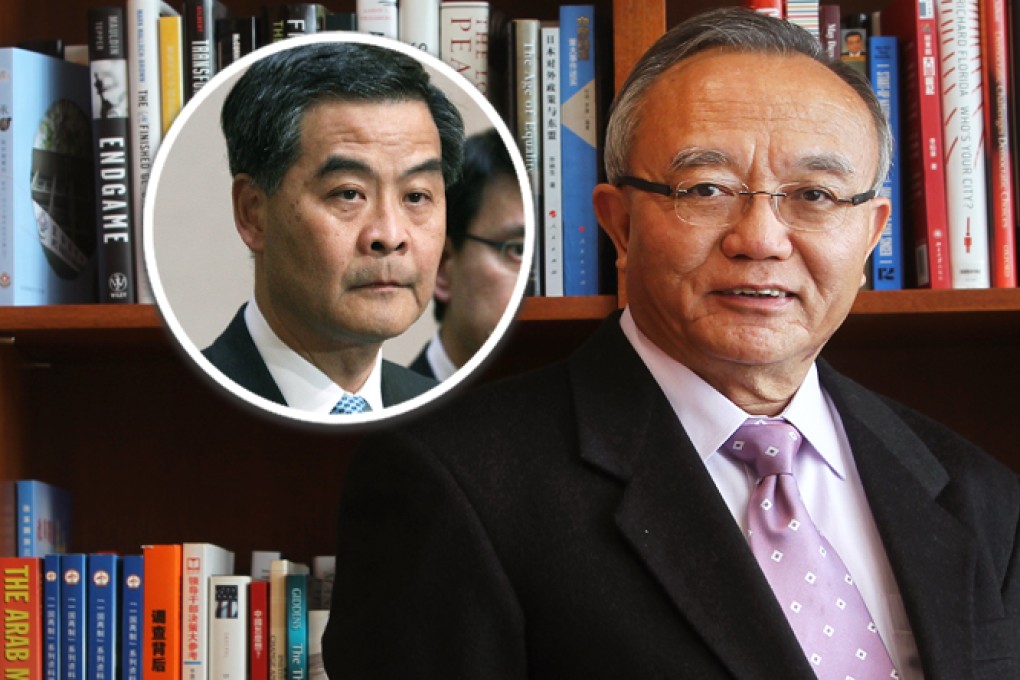Former adviser warns Leung of middle-class backlash over welfare spending
Government faces resistance from middle class over its measures to improve the lot of the poor, says former head of Central Policy Unit

Chief Executive Leung Chun-ying will find it more difficult to govern in the face of a middle-class backlash over the city's rising spending on welfare, a former top government adviser says.

He warned that Leung's spending plans may be sowing the seeds of conflict between the middle class and low-income residents.
"People of middle-class background generally feel they get little benefit from the policy address," Lau said. "The anxiety and grievance among the middle class will intensify the conflict between them and low-income groups."
Lau, now a professor emeritus of sociology at Chinese University, said previous studies conducted by the university found the middle class were generally in favour of social justice but had reservations about big rises in welfare spending.
He said the poverty alleviation measures announced in the policy address, such as the HK$3 billion-per-year Low-Income Working Family Allowance, would condition underprivileged groups to expect more government handouts.
Depending on the hours they work, families whose income falls below the poverty line - drawn at 50 per cent of median household income (HK$22,500) - will receive either HK$600 or HK$1,000 a month, plus HK$400 or HK$800 a month for each dependent child.